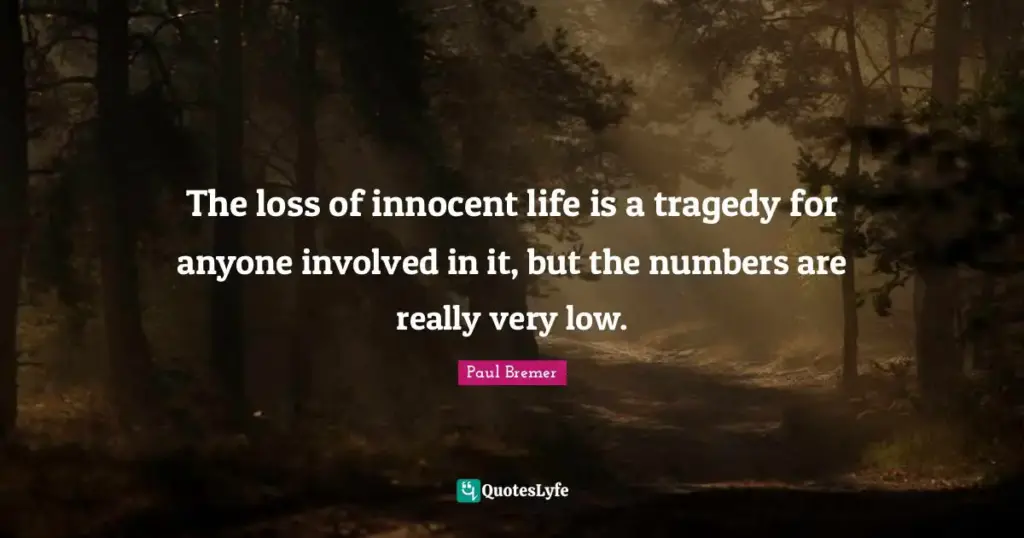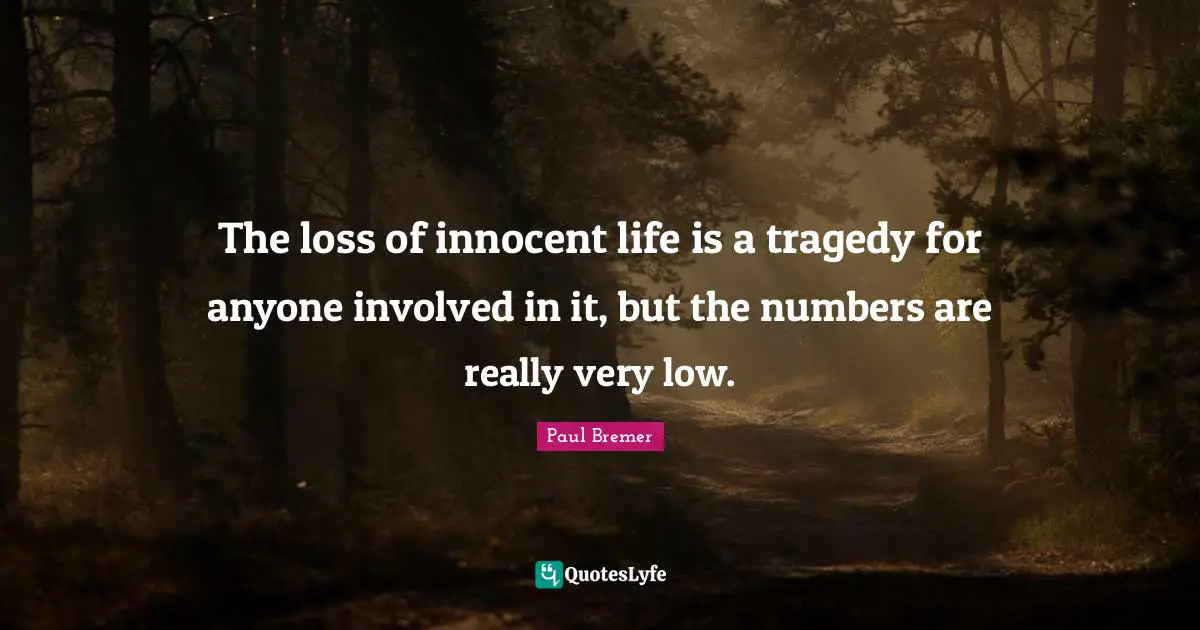
The Precarious Life of the Innocent: Understanding Vulnerability and Protection
The concept of “the life of the innocent” evokes profound moral and ethical considerations. It encompasses the vulnerability of those who, through age, circumstance, or inherent qualities, are unable to fully protect themselves. This article delves into the various facets of innocence, exploring its inherent fragility, the societal obligations to safeguard it, and the legal and ethical frameworks designed to provide that protection. Understanding the complexities surrounding the life of the innocent is crucial for fostering a just and compassionate society.
Defining Innocence and Vulnerability
Innocence, in this context, extends beyond a legal definition. It refers to a state of being characterized by a lack of guile, experience, and the capacity to fully comprehend the potential for harm. This often applies to children, individuals with cognitive impairments, and those in positions of dependence. Their vulnerability stems from this lack of awareness and the inherent power imbalances that exist in their relationships with others. The life of the innocent is particularly susceptible to exploitation, abuse, and neglect.
The Innocence of Childhood
Children are perhaps the most universally recognized group considered innocent. Their dependence on adults for care, guidance, and protection makes them inherently vulnerable. The United Nations Convention on the Rights of the Child (UNCRC) underscores the importance of safeguarding children’s rights, emphasizing their right to protection from all forms of violence, abuse, neglect, and exploitation. The life of the innocent child is a constant process of learning and development, and it’s the responsibility of adults to ensure a safe and nurturing environment for that growth. [See also: Child Protection Laws Around the World]
Innocence and Cognitive Impairment
Individuals with cognitive impairments, whether due to developmental disabilities, acquired brain injuries, or mental illnesses, may also lack the capacity to fully understand the potential consequences of their actions or the intentions of others. This can leave them vulnerable to manipulation, abuse, and exploitation. Protecting the life of the innocent in these cases requires a multi-faceted approach, including supported decision-making, guardianship, and robust monitoring systems.
Innocence and Dependence
Adults can also be considered vulnerable and innocent in certain situations, particularly when they are dependent on others for care, such as the elderly or those with disabilities requiring assistance. These individuals may be susceptible to financial exploitation, neglect, and physical or emotional abuse. Ensuring the safety and well-being of these vulnerable adults requires strong legal protections, diligent oversight, and a commitment to promoting their autonomy and dignity. The life of the innocent in these scenarios is often reliant on the integrity and compassion of caregivers.
Threats to the Life of the Innocent
Numerous threats endanger the life of the innocent. Understanding these threats is paramount to developing effective prevention and intervention strategies.
Abuse and Neglect
Abuse, whether physical, emotional, or sexual, represents a direct violation of the trust and dependence inherent in the relationship between a vulnerable individual and their caregiver. Neglect, the failure to provide basic necessities such as food, shelter, medical care, and emotional support, can have equally devastating consequences. Both abuse and neglect can have long-lasting psychological and physical effects on the life of the innocent, impacting their development, well-being, and future prospects.
Exploitation
Exploitation takes many forms, including financial exploitation, human trafficking, and forced labor. Vulnerable individuals may be targeted due to their lack of awareness, dependence on others, or fear of reprisal. Protecting the life of the innocent from exploitation requires a concerted effort from law enforcement, social services, and community organizations to identify and disrupt these criminal activities. [See also: Combating Human Trafficking]
Online Dangers
The digital age presents new and evolving threats to the life of the innocent. Children and vulnerable adults may be targeted by online predators, exposed to inappropriate content, or subjected to cyberbullying. Educating vulnerable individuals and their caregivers about online safety is crucial for mitigating these risks. This includes teaching them how to recognize and avoid potentially harmful interactions, protect their personal information, and report online abuse.
Legal and Ethical Frameworks for Protection
Various legal and ethical frameworks are in place to protect the life of the innocent. These frameworks aim to prevent abuse, exploitation, and neglect, and to provide support and recourse for victims.
Child Protection Laws
Child protection laws vary by jurisdiction, but generally include provisions for reporting suspected child abuse and neglect, investigating allegations of maltreatment, and removing children from unsafe environments. These laws also outline the rights of children in legal proceedings and ensure that their best interests are considered in all decisions affecting their welfare. Protecting the life of the innocent child is a fundamental principle underlying these laws.
Adult Protective Services
Adult Protective Services (APS) agencies are responsible for investigating allegations of abuse, neglect, and exploitation of vulnerable adults. APS workers assess the safety and well-being of these individuals and provide services to help them remain safe and independent. These services may include case management, counseling, financial assistance, and legal advocacy. The goal of APS is to protect the life of the innocent adult and prevent further harm.
Guardianship and Conservatorship
Guardianship and conservatorship are legal processes by which a court appoints a person to make decisions on behalf of an individual who lacks the capacity to do so themselves. Guardianship typically involves decisions about personal care, such as medical treatment and living arrangements, while conservatorship involves decisions about financial matters. These arrangements are intended to protect the life of the innocent individual by ensuring that their needs are met and their interests are protected. However, it’s important to note that these should be a last resort, with supported decision-making explored first.
Societal Obligations and Responsibilities
Protecting the life of the innocent is not solely the responsibility of legal and social service agencies. It is a societal obligation that requires the involvement of individuals, families, communities, and organizations. The life of the innocent depends on our collective vigilance.
Community Awareness and Education
Raising awareness about the signs of abuse, neglect, and exploitation is crucial for preventing harm to vulnerable individuals. Community education programs can help people recognize the red flags and report suspected cases of maltreatment. These programs can also provide information about available resources and support services. Protecting the life of the innocent starts with awareness.
Reporting Suspected Abuse
Many jurisdictions have mandatory reporting laws that require certain professionals, such as teachers, healthcare providers, and social workers, to report suspected cases of child abuse or neglect. However, anyone who suspects that a child or vulnerable adult is being harmed has a moral and ethical obligation to report it. Reporting suspected abuse can save a life of the innocent and prevent further suffering.
Promoting a Culture of Respect and Dignity
Creating a culture that values respect, empathy, and dignity is essential for protecting the life of the innocent. This includes promoting healthy relationships, teaching children and adults about boundaries and consent, and challenging attitudes and behaviors that perpetuate violence and exploitation. The life of the innocent thrives in an environment of respect.
Conclusion
The life of the innocent is a precious and fragile thing. Protecting it requires a comprehensive approach that encompasses legal and ethical frameworks, societal awareness, and individual responsibility. By understanding the vulnerabilities of those who cannot fully protect themselves and working together to create a safer and more compassionate world, we can ensure that the innocent are able to live free from harm and reach their full potential. The responsibility to safeguard the life of the innocent rests with each and every one of us.

